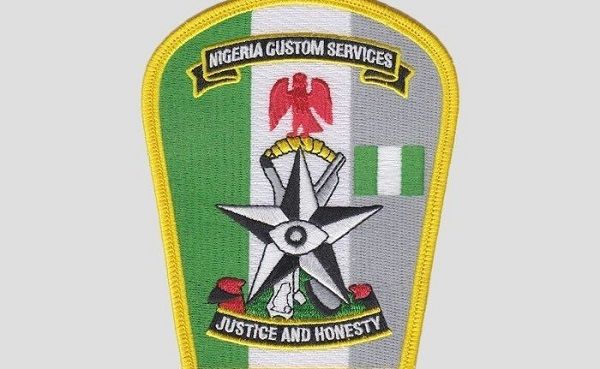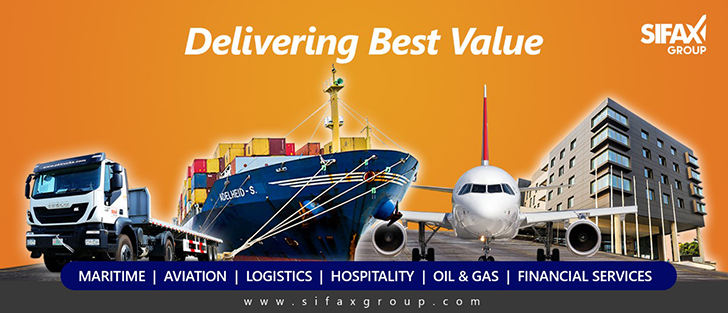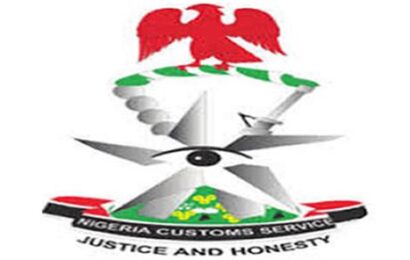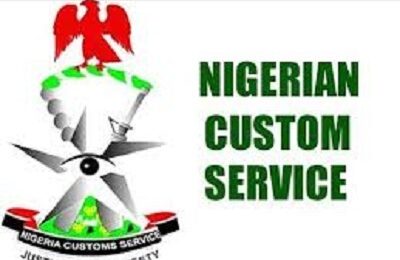
The Apapa Area Command of the Nigeria Customs Service has said that the transfer of overtime cargoes from the ports to the government warehouse in Ikorodu is not the responsibility of Customs but the Nigerian Ports Authority (NPA).
Recall that the Managing Director of NPA, Muhammed Bello- Koko recently said there are over 5,000 overtime containers across the nation’s ports taking up space for new imports at the seaport terminals.
Bello- Koko, w“ho spoke during an interactive session organized by the House of Representatives Committee on Customs had asked the Service to auction the overtime containers to decongest the nation’s seaports.
Cargoes are classified as overtime when they have stayed in the port for 28 days without the importer or clearing agent coming up to clear them and take delivery.
Controller of the Command, Comptroller Yusuf Malanta, who spoke when he received executive members of the Shipping Correspondent Association of Nigeria (SCAN) who paid him a courtesy visit in his office on Friday said it requires a lot in terms of logistics and financial commitment to move overtime cargoes from the port to the government warehouse in Ikorodu.
According to him, there are currently about 500 overtime containers including import and export at the Apapa port and it will cost an average of N600, 000 to move each of the containers from the port to Ikorodu – a cost which he said the command is not ready to bear.
The Customs boss explained that there are also laid down procedures for disposal of overtime cargoes that must be followed before they are auctioned to avoid litigation.
“Moving containers to Ikorodu terminal entails a lot of logistics and financial commitment. To take one container from here to Ikorodu will cost at least N600, 000 and above. Now if we are moving 500 containers to Ikorodu, how much will that translate into? However, we have a series of procedures before it comes to moving containers and even moving containers to Ikorodu is the responsibility of the NPA not Customs.
“Customs will make sure that they receive unclaimed cargo lists from the shipping companies and the terminal operators then they will now examine those unclaimed cargo lists after the free storage period. After examination, they will leave it for a certain number of days for importers to come and claim their cargo. After the date expires, they will send it for gazetting by the court because of litigation, when the court gazettes it, it will now go for auction.
“After the auction, people will now go online to bid for the items. In most cases, those consignments that will find out that they are going to be outrightly seized and they are consumables, we give them to the Internally Displaced Persons (IDPs) through a presidential committee, not even Customs. So, these are the procedures, it is not that Customs will just come and start carrying overtime cargo and start dropping it at Ikorodu for auction. When they (NPA) concessioned the port, they forgot that there is Customs and therefore the government warehouse that used to exist where we keep cargoes is no longer there,” he said.
Meanwhile, Controller Malanta said the command generated over N87billion in the month of September adding that the command hopes to collect up to N100billion by year-end.
He attributed the revenue increase to measures instituted by the command when he assumed office nine months ago and increased level of compliance by importers and their agents.
Part of the measures, according to him, is the deployment of officers with high level of integrity to strategic units of the command and blocking of revenue loopholes.
He said, “When we come on board, we look at the structures on ground, the type of officers we should post and where you will post them. I know 80 percent of the officers either through interaction or through a fora so I make sure that the officer I put in a place is an officer that has a high level of integrity. So, with that high level of integrity, I am sure, he would perform his work diligently. Then I tried to strategize based on that and look at the gap to identify loopholes and areas we need to amend.
“We started with the forensic manifest management system where we trail declaration through the manifest and we make sure that illicit importations are sieved out and those who want to circumvent through under-declaration of quantity, under declaration in terms of rate of duty through HS Code are also being tracked and revenue is recovered back with the penalty to serve as a deterrent.
“When they (importers/agents) saw that there was no hidden place, that is when I started getting compliance. So, with the compliance level I get, which has increased by over 40 percent, the more the revenue is also increasing.
“We also transform the challenges of the gridlock into opportunities through the use of barges to move containers and the use of the standard gauge line that is coming up has relieved the system of about 30 percent of containers going out of the port and that means the supply chain is moving. You hardly come to the gate and see any queue. Once we are releasing, cargo is going out and revenue is coming. These are some of the basic things we are doing,” he said.
Comptroller Malanta added that export through the Apapa port has also increased by over 25 percent within the review period.






